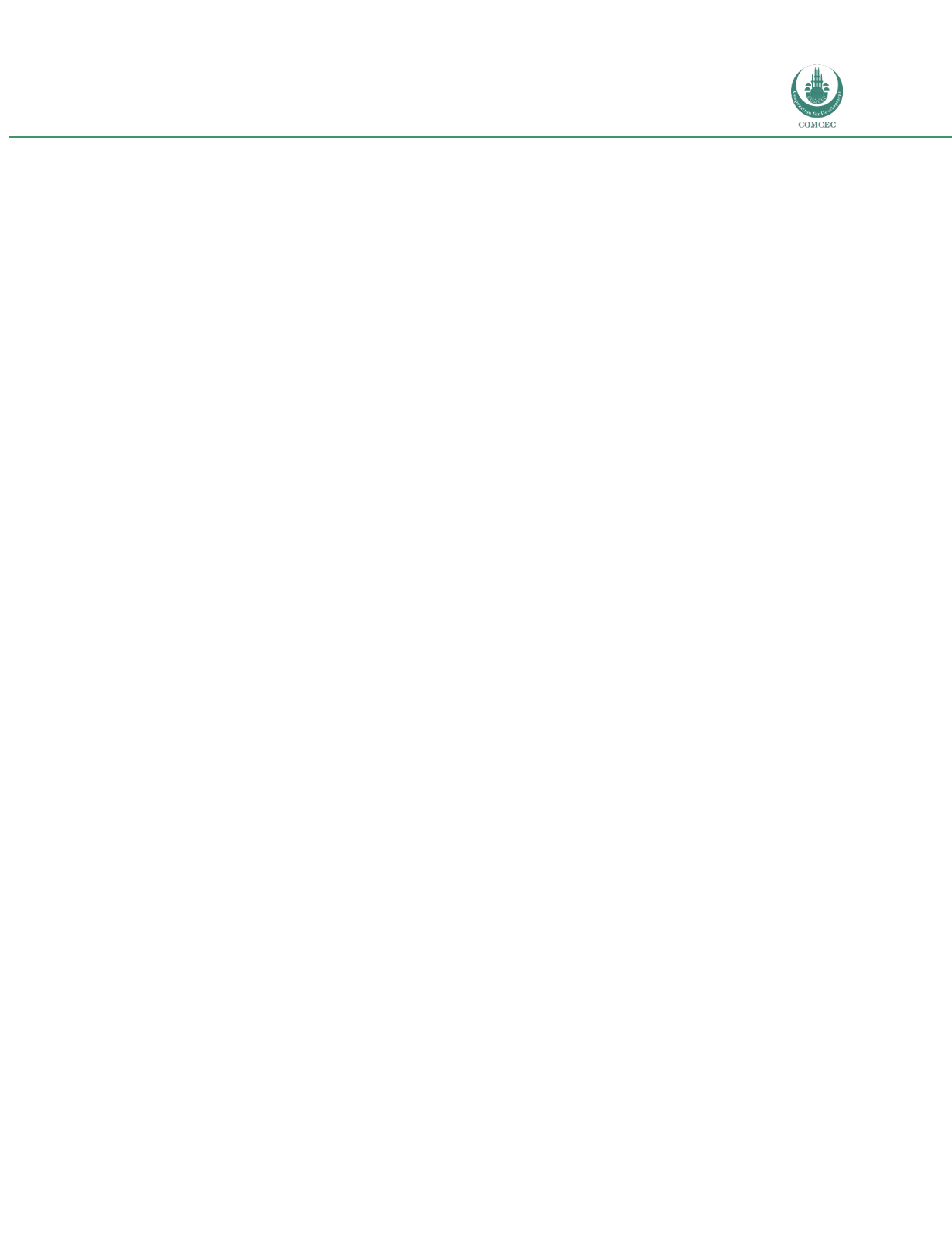

Strengthening the Compliance of the OIC Member States
to International Standards
105
impediment to using standardization as a basis for upgrading national productive capacity, as it implies
that take up rates within industry are probably relatively low—a factor that could help explain the
difficulty Senegal has had in entering global markets, in particular the European Union. Senegalese
exports have been the subject of RASFF notifications for food safety issues in recent years, and although
the rate is declining—from 14 in 2012 to 9 in 2014—the number is still to be taken seriously in the
context of a relatively small export base, and the importance of the European Union as a destination
market. Moreover, recent research has revealed the existence of reputation effects, which mean that a
single rejection can carry over to other shipments and affect the future pattern of trade (Jouanjean et al.,
2015).
In terms of standards and quality infrastructure, Senegal is part of an important regional movement
under the UEMOA umbrella. Regulation No. 01/2005/CM/WAEMU establishes the following permanent
regional quality promotion bodies:
a)
the West African Accredication System (SOAC);
b)
the Regional Standardization, Certification, and Quality Promotion Secretariat (NORMCERQ);
c)
the West African Metrology Secretariat (SOAMET); and
d)
the Regional Quality Coordination Committee (CRECQ).
However, development of these institutions on the ground and their use to fill the gaps in Senegal’s own
national quality infrastructure remains a challenge. To date, the regional approach to quality
infrastructure is promising, and could bear fruit if sufficient technical and financial resources are made
available by member states and development partners.
As the preceding discussion indicates, conformity assessment can be a challenge in Senegal due to the
fact that core elements of the national quality infrastructure are still in the development phase.
Concretely, a number of laboratories are involved in testing, both government-run and private bodies.
Responsibility for conformity assessment is therefore shared between the public and private sectors.
This area is one that is expected to develop in the future, particularly with the support of UEMOA’s
regional programs on quality infrastructure.
6.2.3.2
Harmonization
Cognizant of its obligations under the WTO Agreements, Senegal has been careful to ensure a maximum
possible level of international harmonization of its standards, nearly 80%. Sources of international
norms include the most common ones, ISO, IEC, and the Codex for food products. In line with this
commitment to international standards, Senegal allows the sale of foreign goods in its market if there is
no relevant national standard, provided that they comply with an international standard, or the
















